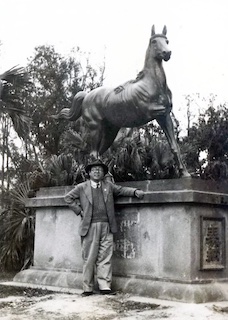News update at Father's Grave
Author: Peter Wang
Translator: Yingxian Wang

In 2017, the Ministry of Education designated the Mandarin Daily News as a government-donated foundation and ordered it to modify its articles of association as the supervisory authority, appointing several key directors. The Mandarin Daily News challenged this decision and filed an administrative lawsuit.
In the first-instance ruling, the court found that when the Mandarin Daily News was established, government funding did not exceed 50% of its total assets, and thus it was not a government-donated foundation. The Ministry of Education appealed, but the second-instance court upheld the original ruling. The Ministry of Education appealed again, and the Taipei High Administrative Court ruled that while the Ministry of Education was the supervisory authority, it had no authority to impose administrative penalties, and therefore the Mandarin Daily News’ request to revoke the original penalty was justified.
The case was ultimately settled, but the Mandarin Daily News endured more than five years of litigation and suffered deep wounds.
My father, the founder, Wang Shou-kang, ended a Mandarin newspaper in Beiping in early 1948 and came to Taiwan to participate in the founding of the Mandarin Daily News, serving as its first vice president. The Ministry of Education provided a 10,000 yuan voucher, but the new currency depreciated quickly and the funds ran out. Shortly after the first issue was published, the newspaper could not sustain itself economically and was forced to sell its factory and lay off staff in 1949. The Mandarin Daily News was abandoned by the Ministry of Education. They did not give up and established a board of directors for the Mandarin Daily News Foundation to continue running the newspaper. After many hardships, it mdae glorious achievements and became the main Chinese language learning publication for every primary and secondary student in Taiwan for many years. Many people say, “We grew up reading the Mandarin Daily News.”
The ruler distorts the facts, insisting that this abandoned infant belongs to the Ministry of Education and must be returned to serve as a “green wing” in the future! Some say that the success of the Mandarin Daily makes others envious, while others say that the Mandarin Daily does not conform to the ruler’s “curriculum” and needs to be taken over and reformed. Is it necessary for the “improper party assets committee” to bother with the assets owned by the Mandarin Daily? The “transitional justice committee” probably has objections to the newspaper’s many years of vigorously promoting Mandarin (Beijing dialect), as this is quite different from its goal of independence and de-sinicization.
This country claims to be a showcase of democracy in Asia. The ruler intends to abolish the current use of Mandarin, but a public referendum proposal can be put forward for all voters to decide. If the majority of the people agree to use a certain dialect as the local first official language, who dares to ignore it? However, they know that such a referendum proposal will not pass, so they arbitrarily order the Mandarin Daily to change its tune and obediently follow their commands! After losing the lawsuit, they repeatedly spend large amounts of taxpayers’ money on litigation, but only end up with a record of “attempted plunder of private foundation assets with the authority of the ruling party”.
Do they understand what language education is? The current promotion of “English as the second official language” has no specific plan, no schedule, no textbooks, no qualified teachers, and yet they issue documents requiring the teaching of classical Chinese in English. Is this just to consolidate their rule and present a facade of internationalization?
In the early years, my father and his peers who promoted language education, such as Qi Tiehen, Hong Yanqiu, He Rong, Liang Rongruo, and Xia Chengyan, held the same firm belief: a unified language is a necessary condition for entering as a modern advanced country. In difficult environments, they worked tirelessly, not seeking fame or remuneration, and devoted themselves wholeheartedly to language education. The results of their decades of accumulated efforts are visible to all.
Father was once hired by the Taiwan Provincial Department of Education to give lectures in various primary and secondary schools throughout the province. He tirelessly traveled around, delivering lively and fascinating speeches, citing examples and making references to emphasize the urgency and importance of a unified language. His efforts received an extremely enthusiastic response! Mother said that the more he saw the audience’s positive reactions, the more he became passionate about his work, often forgetting to take his medication and properly take care of his health. That day, Father gave three consecutive lectures and hosted a discussion until late at night in Taichung. Exhausted from overwork, he suffered a stroke and lost his ability to speak, making it impossible for him to continue his work in language education.
As I climbed up the mountain to visit my parents’ grave, I whispered to my father: “Finally, the National Language Daily has won the lawsuit.”
